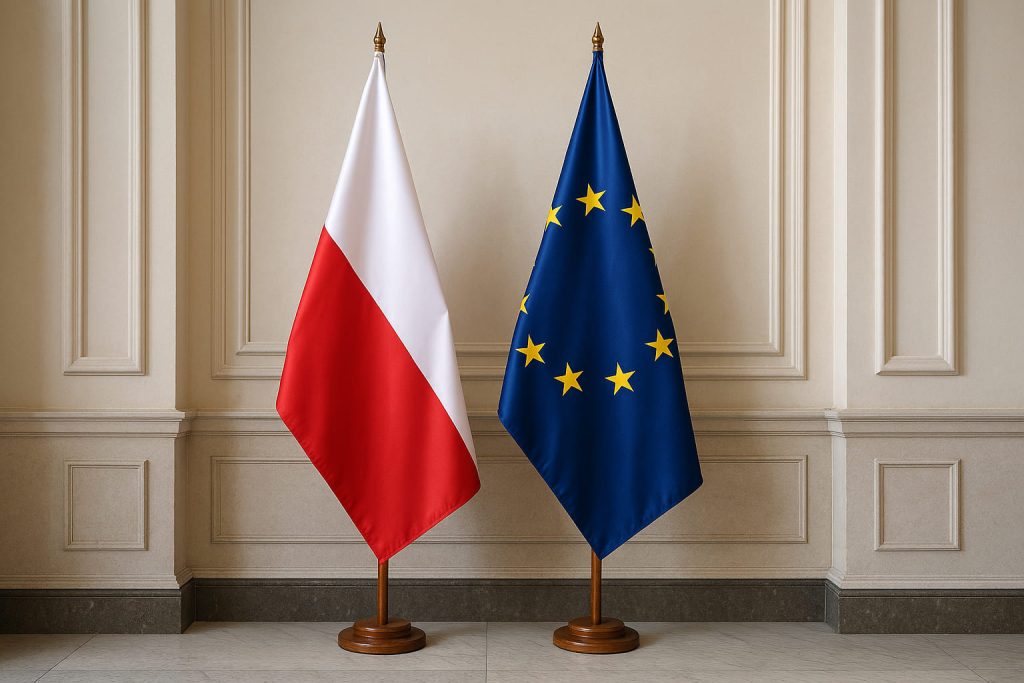[FR] The Court of Justice of the EU and Poland: the first signs of a breakthrough

The heatwave, which affected the entire European continent, did nothing to warm relations between Poland and the European Union. On the contrary, the summer was marked by a hardened tone, due to a recent decision by the Court of Justice of the European Union (CJEU) on July 25, 2018. This decision followed a referral made by the Irish High Court in May, which had to rule on the execution of a European Arrest Warrant against a Polish national drug trafficker. Judge Aileen Donnelly expressed doubts as to whether the judicial reforms in Poland would guarantee the defendant a fair trial, also arguing that mutual trust between national courts, which underpins the European Arrest Warrant system, was being called into question.
The CJEU’s decision had been eagerly awaited by European constitutional law experts to assess to what extent the Court might, or would want to, play a political role in dissecting alleged breaches of the rule of law in Poland. Without fully assuming that role, the CJEU nonetheless delivered a judgment critical of the Polish authorities. The European judges decided to refer back to the Irish High Court the responsibility of determining whether the defendant could receive fair treatment, and thus whether the warrant should be executed.
In its reasoning, the CJEU particularly emphasized the fact that Poland is subject to a procedure under Article 7(1): “The information contained in a recently reasoned proposal by the Commission to the Council based on Article 7(1) TEU constitutes particularly relevant elements for the purpose” of evaluating the functioning of the Polish judicial system. Without condemning the reforms outright, this statement can be interpreted as a very clear indication of the Court’s concerns regarding developments in Poland. Beyond the immediate effects of this decision, it also undermines the Polish argument that the principle of mutual trust prevents a member state’s judiciary from questioning the validity of a European Arrest Warrant. Furthermore, it opens the door for the Irish judiciary to determine whether there has been an erosion of the rule of law in Poland, and whether this reality prevents the defendant from receiving a fair trial.
This decision is both encouraging, in that it recognizes for the first time a clear risk to the rule of law in Poland, but it has a relatively limited application, since the Irish court must restrict its inquiry to the specific case of the defendant. Nevertheless, it is more than likely that this is just the beginning of a legal battle between Ireland and Poland, as reflected in Polish reactions to the CJEU ruling.
In the longer term, this decision lays the groundwork for future legal disputes that may be brought before the Court in connection with the reform of the Polish Constitutional Tribunal, and it shows that the CJEU is not reluctant, in well-defined cases, to enter the political arena, provided a legal basis supports its ruling.
Pending a second chapter, Polish opposition figures continue to express concern over the ongoing dismantling of the Constitutional Tribunal, whose outgoing president (under the new rules) refuses to step down. At the same time, the ruling party has begun the parliamentary process to adopt a new electoral law for the European elections, under which the threshold for representation in the European Parliament would be set at 16.5%, three times the legal maximum, effectively preventing opposition forces from being represented in Strasbourg. This is strongly reminiscent of the electoral redistricting seen in Hungary: the PiS continues to follow the path paved by Budapest.




